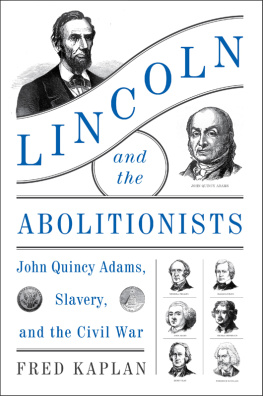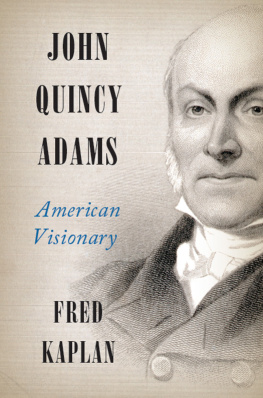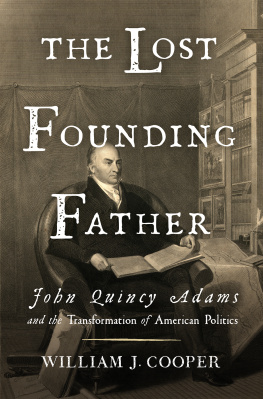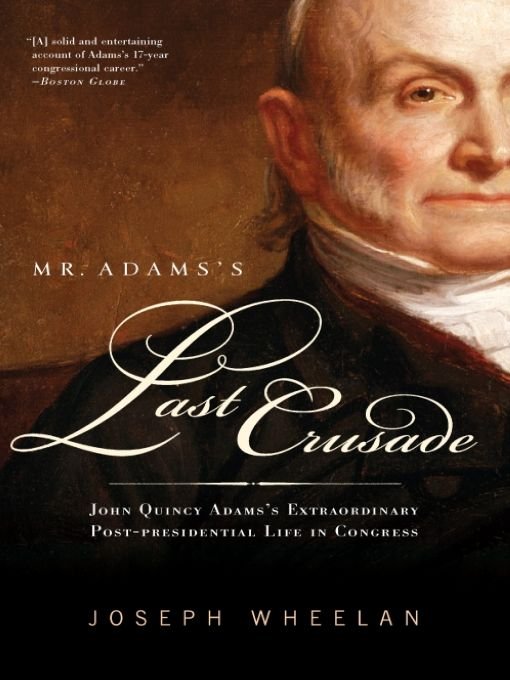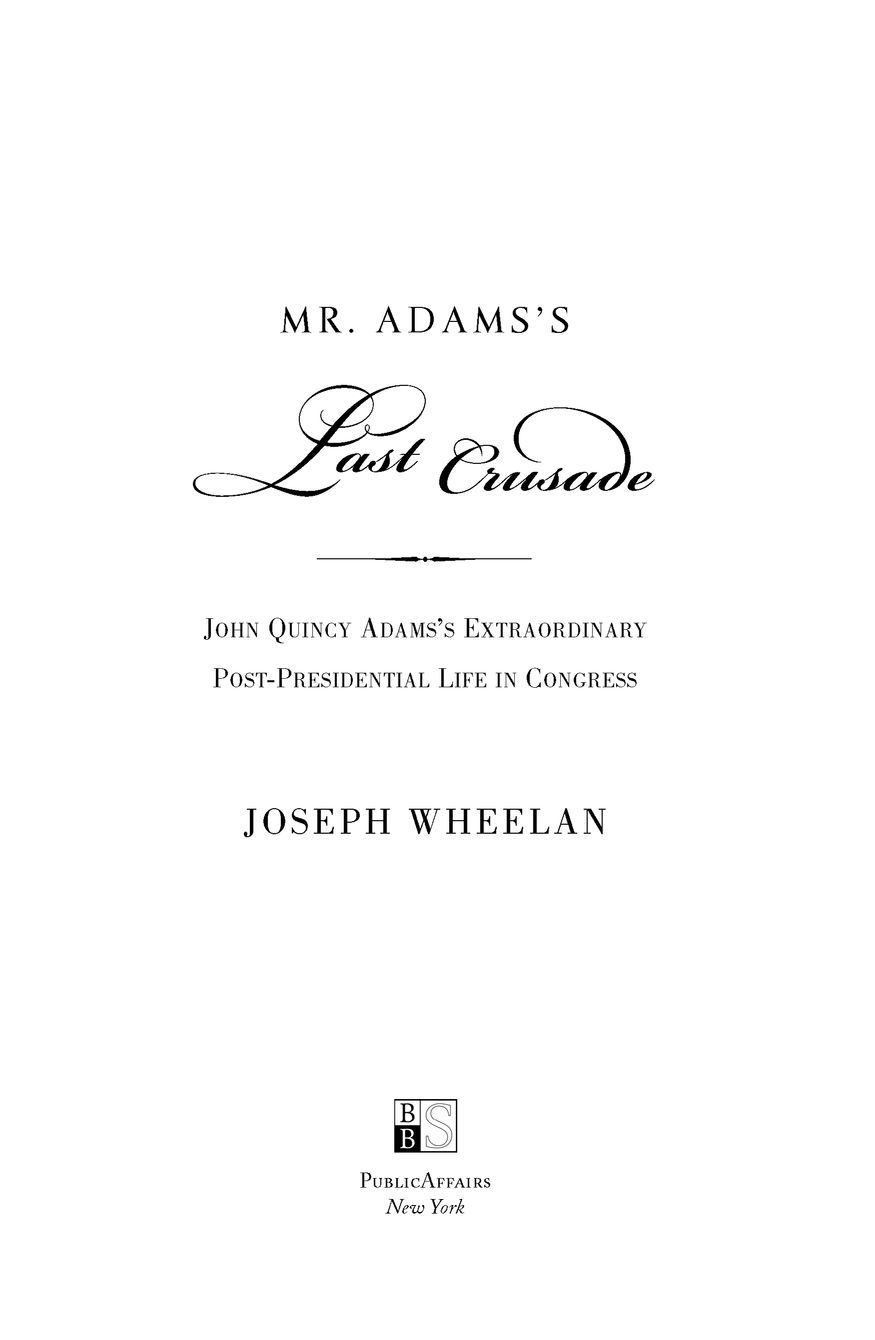Table of Contents
Authors Note
American presidents rarely diverge from the ancient example of Cincinnatus, the Roman consul who, after serving as dictator during a national emergency, returned home to his plow. George Washington was the American exemplar of this model of public service, and his successors, for the most part, have adopted the practice of retiring to their home place.
Ex-presidents often become living ghosts of their formerly famous selves. We see them at ceremonial functions, but otherwise they are invisible to us. We picture them in their studies, organizing their papers and spending a couple of hours a day writing their memoirs, or golfing, sailing, or riding horsesindulging in the private pursuits that they often sacrificed while they were busy serving the public.
In my lifetime, presidents Jimmy Carter and Bill Clinton broke with this archetype to devote their post-presidencies to humanitarian and other public causes. Previously, William Howard Taft, president from 1909 to 1913, was appointed to the U.S. Supreme Court in 1921 and served nine years as its chief justice. After losing a third-party bid for the presidency, Theodore Roosevelt explored Brazils River of Doubt, a place visited (at least figuratively) by all presidents at one time or another. Andrew Johnson, impeached and nearly convicted, was subsequently elected to the Senate but died after serving only four months.
But no ex-president can match the astonishing record of John Quincy Adams. His presidency, generally regarded as a failure, was of only one terms durationhe and his father, John Adams, were the only one-term presidents among the first seven chief executives. Adams appeared destined for anonymous retirement in his native Massachusetts when something serendipitous happened; his friends and neighbors sent him to the House of Representatives. This book focuses on Adamss amazing seventeen years in the House of Representatives. No recent Adams biography, and few of any vintage, has made his congressional career its primary subject; books on the second Adams tend to recount his life as a rising narrative climaxed by his dismal presidency. His congressional career is usually presented as an afterthought. While this book relates Adamss extraordinary early life as a diplomat, son of the Revolution, and secretary of state, his actions during these years and his presidency are here presented as a prelude to his entry into the House of Representatives in December 1831.
Adams entered the House as a freshman congressman at the age of sixty-four, believing that if the people summoned him, he was obligated to obey that summons. This was an antiquated notion that did not fit with the raw political ambition and slash-and-burn politics of the Jackson era. In the seventeen years that followed, Adams largely redeemed his presidential record by becoming Congresss leading champion of the First Amendment right to petition and its first great opponent of slavery. He also became a passionate advocate for the sciences and oversaw the establishment of the Smithsonian Institution, ensuring that James Smithsons generous bequest to the United States was not squandered. Most importantly, Adams became Congresss consciencea prickly, sarcastic, and highly articulate voice of reason. His allies fondly referred to him as Old Man Eloquent; his enemies not so kindly called him the Madman of Massachusetts, and worse.
Few public figures have been as highly principled or as extraordinarily intelligent as Adams. Few have worked as hard as he. Adams knew the ropes of the House better than his longer-serving colleagues. He used that knowledge to torment the slave power during the 1830s and 1840s, to condemn the governments cruel removal of eastern Indian tribes, to uphold the right of women to participate in the political process, and to argue against the war of aggression against Mexico.
Why is John Quincy Adams relevant now? Today, we Americans regard our government with weary cynicism and distrust. We need to be reminded that it neednt be this way.
America once produced a fearless, combative, highly principled man of the whole country in the person of John Quincy Adams, and she can do it again. We need to listen for his or her clear, reasonable voice amid the din of equivocating, obfuscating, and temporizing politicians. The byword that Adams had engraved on his signet ring is a good enough admonition: We must Watch.
Prologue
And so I am launched again upon the faithless wave of politics.
Former President John Quincy Adams, upon being nominated for the 12th Congressional District
SEPTEMBER 18, 1830, BOSTON
The unlikely courtship ritual began with an unsigned paragraph in the Boston Daily Courier proposing that John Quincy Adams, eighteen months removed from a disappointing single-term presidency, represent Massachusettss Plymouth District in Congress.
On this mild late-summer day, the stout, severe-looking scholar, poet, amateur scientist, devout Christian, master diplomat, and sixty-three-year-old son of the Revolution, indifferently attired as usual, traveled to the Worcester home of Congressman John B. Davis for the rituals next phase.
Well versed in the antiquated gentlemens politics of George Washington, Thomas Jefferson, and his father, John Adams, John Quincy Adams knew what the summons to Daviss home meant and what his answer would necessarily be. The sixth presidents hometown, Quincy, had recently been gerrymandered into the 12th Congressional District (also known as the Plymouth District), now represented by the Reverend Joseph Richardson of Hingham. Members of Richardsons Unitarian congregation had grown impatient with his long absences in Washington over the past three years and were now pressuring him to forego another congressional term so that he could devote more time to church matters.
Richardsons quandary notwithstanding, Adams was certainly not honor-bound to uphold the National Republicans standard in Congress. No former president had ever returned to elective office, much less Congress. Adamss unhappy tenure as chief executive and the surpassingly vicious 1828 re-election campaign that had supplanted him with the military chieftain, Andrew Jackson, had surely curdled any vestiges of ambition in him.
At Daviss home, Congressman Richardson, as expected, informed Adams that he had resolved to return to his parish and would not seek a third term. Would Adams consent to run in his place? The office, said Richardson, was not beneath an ex-president; instead of degrading the individual, [it] would elevate the Representative character.
Adams agreed with Richardsons assessment. No person can be degraded by serving the people as a Representative of Congress. Nor, in my opinion, would an ex-President of the United States be degraded by serving as a Selectman of his town, if elected thereto by the people. Nevertheless, he was inclined to pass up the invitation because of his advanced age and poor health. It might depend upon circumstances, he said as he left, leaving the door slightly ajar.
In the parlance of the code observed by Adams, this was tantamount to acceptance. After his defeat by Jackson in 1828, he had been sounded out about serving in the U.S. Senate. His initial reaction had been to decline and withdraw from all connection with public affairs, but two days reflection had led him to modify his position to one in which he would not hold myself at liberty to decline repairing to any station which they [the people] assign me. The people, however, chose someone else.



